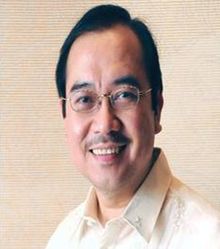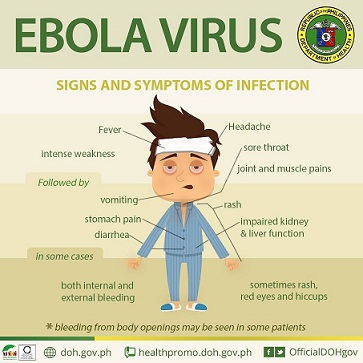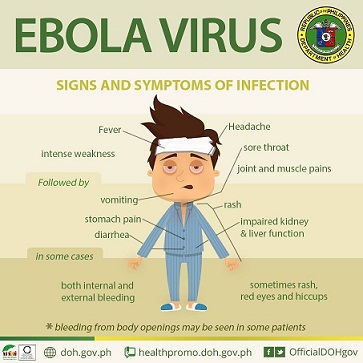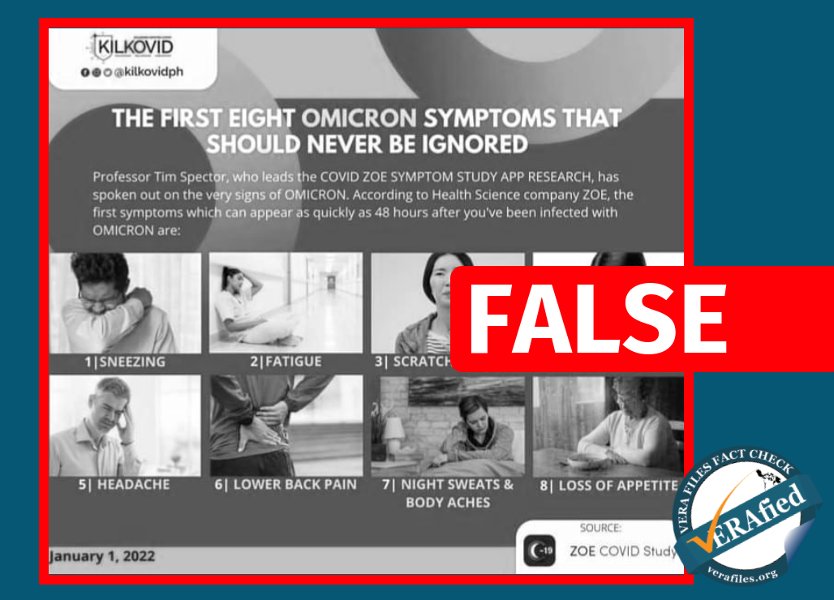By ELLEN T. TORDESILLAS

THE Philippine College of Physicians, headed by Dr. Anthony Leachon, is recommending that the Philippine government require returning Filipinos from West Africa, where there is a widespread outbreak of the killer disease Ebola, to undergo exit screening there before being allowed to come home.
That is on top of the quarantine required upon their arrival in the Philippines.
The exit screening, Leachon explained, should be quarantine for 21 days, blood tests and questionnaire before traveling back to Manila.
Upon arriving in the Philippines, Leachon said they should also be quarantined for at least seven days to a maximum of 21 days.
Leachon said the longer quarantine is important based on the new findings of the World Health Organization that the incubation period of Ebola is 42 days and not 21 days.
“We need to raise the energy level of the government Ebola response team to involve more agencies and ensure a checklist is in place starting off from exit screening in West Africa,” he said.
Leachon said ” NAIA should be prepared for the influx of OFWs in the next three months with the planned voluntary or mandatory repatriation in mid-November in the event of progressive rise in outbreak cases. The forthcoming Christmas season and the Papal visit in January will make the preparations more challenging in terms of resource allocations. ”
An epidemic of Ebola virus disease (EVD) is ongoing in certain West African countries notably Liberia, Sierra Leone, and Guinea. Over 4,500 persons have already died from the disease which has no vaccine and cure as of now.
There have been Ebola cases in Nigeria (eight have died) but yesterday the country was declared Ebola-free by WHO. Health experts cited the Nigerian government’s strong political will and effective health surveillance system.
Leachon said controlling the Ebola virus outbreak at the source in West Africa is the most effective way to decrease international risk of transmission citing a research paper published in The Lancet by Dr. Kamran Khan, a physician and researcher at St. Michael’s Hospital in Toronto.
Dr. Khan, who examined global airline travel patterns to predict the spread of diseases, said that every month, three Ebola-infected travellers are likely to leave West Africa and this number would only increase as the epidemic grows.
“We should protect our country first from the entry of Ebola virus, especially those coming from West African countries that are in the area of greatest peril. This should be the focus of our efforts in the light of the looming global epidemic on the dreaded virus,” Leachon said.
 The PCP is accelerating the mobilization of the 10,000 members to help the government in disseminating information to all stakeholders – schools, workplace, and the communities.
The PCP is accelerating the mobilization of the 10,000 members to help the government in disseminating information to all stakeholders – schools, workplace, and the communities.
“We should prepare all hospitals of whatever level, to make sure health personnel and all health facilities are prepared to handle suspected cases of Ebola. We need to build new areas where the 3,000 Filipinos coming home from west Africa in November can be accommodated when the alert level is raised, and in anticipation of the Christmas holiday season,” Leachon said.
Leachon cites the case of a taxi driver in Liberia, Thomas Eric Duncan, who helped carry an Ebola victim, Marthalene Williams, to the hospital last Sept. 15.
William’s family, who owned the apartment that Duncan was renting, requested him to accompany them to the hospital because there was no ambulance available. Four days later, on Sept. 19, Duncan left for America, taking a Brussels Airlines flight to Belgium, where he boarded a United Airlines flight to Washington’s Dulles Airport. Duncan did not reveal his contact with the disease in a questionnaire he filled out at the Monrovia airport. From Washington, he took another UA flight, arriving in Dallas early in the evening of Sept. 20. There he stayed with his girlfriend and her five children.
On Sept. 24, Duncan complained of high fever and abdominal pain, prompting his partner to take him to the emergency room of the Texas Health Presbyterian Hospital. Again, when asked, he lied about his contact with the disease. He was diagnosed with a mild viral infection and sent home with a prescription of antibiotics. Four days later, he was back in the same hospital with more severe symptoms. On Sept. 30, Duncan’s Ebola diagnosis was confirmed, and he was given the experimental drug “Brincidofovir.” He, however, could not be saved. On Oct. 8, he became the first person to die from Ebola in the United States.
Leachon said the PCP has formed a Task force on Ebola to assist the government in educating the public schools, workplace and the LGUs and in training healthcare professionals to address this epidemic.




